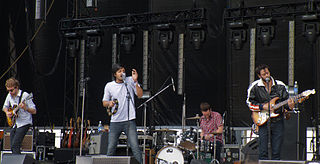A Quote by Barbara Kruger
All the gossip and craziness becomes a kind of sustained narrative which, in turn, can become history. It's scary.
Related Quotes
It is important to insist on the historical truthfulness of the narrative of the fall of Adam and Eve. Just as the account of the creation of Adam and Eve is tied in with the rest of the historical narrative in the book of Genesis, so also this account of the fall of man, which follows the history of man's creation, is presented by the author as straightforward, narrative history
What is quite worrisome is the absence of analysis and reflection. Take the word "terrorism." It has become synonymous now with anti-Americanism, which, in turn, has become synonymous with being critical of the United States, which, in turn, has become synonymous with being unpatriotic. That's an unacceptable series of equations.
In a very real way, one writes a story to find out what happens in it. Before it is written it sits in the mind like a piece of overheard gossip or a bit of intriguing tattle. The story process is like taking up such a piece of gossip, hunting down the people actually involved, questioning them, finding out what really occurred, and visiting pertinent locations. As with gossip, you can't be too surprised if important things turn up that were left out of the first-heard version entirely; or if points initially made much of turn out to have been distorted, or simply not to have happened at all.
Novels institutionalize the ruse of eros. It becomes a narrative texture of sustained incongruence, emotional and cognitive. It permits the reader to stand in triangular relation to the characters in the story and reach into the text after the objects of their desire, sharing their longing but also detached from it, seeing their view of reality but also its mistakenness. It is almost like being in love.
There's some ambient music that doesn't do anything. I wouldn't say that that's narrative. It is narrative in that it creates a sort of world where nothing happens, where really nothing happens, so you become a different person after hearing eight minutes of exactly the same thing. Yes, I hear music all the time in which one idea is strung together to another idea, and I feel that such music is non-narrative.
...for reading, once begun, quickly becomes home and circle and court and family, and indeed, without narrative, I felt exiled from my own country. By the transport of books, that which is most foreign becomes one's familiar walks and avenues; while that which is most familiar is removed to delightful strangeness; and unmoving, one travels infinite causeways, immobile and thus unfettered.
Sharing art makes me feel vulnerable. Sharing a piece of you that cannot be objectified, that is so truly you. It is scary releasing new music to the public, because as soon as you do, it becomes a shared receptacle to which others can attach their own opinion and meaning. What makes it scary is also what makes it worth doing.








































